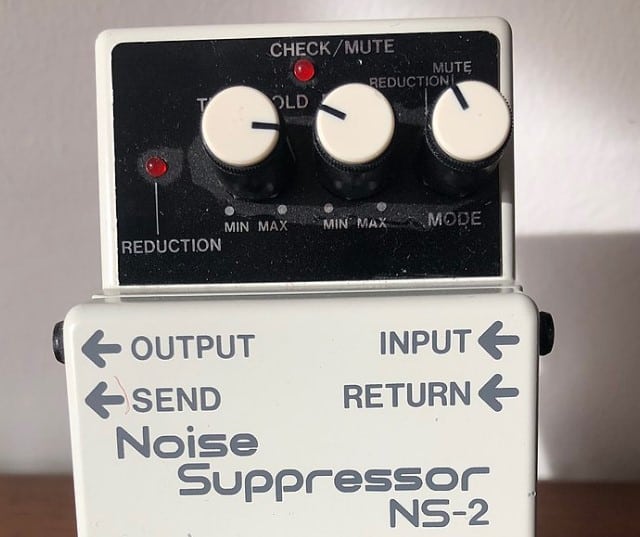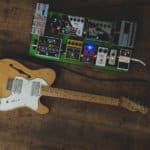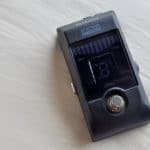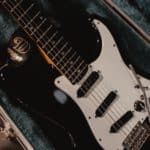Single Coils hum. This is not an unknown fact.
But what’s the reason behind it?
Well, the magnetic coils of the single coils are too sensitive to external electromagnetic interference.
Light bulbs, amplifiers. Everything is picked up by this pickup!
However, there are some ways in which we can get rid of this humming.
Effect pedals are one of them.
Unsurprisingly, the first two options that come to our mind are noise gate pedals and noise suppressor pedals.
First, let’s focus on the latter.
Will a noise suppressor pedal eliminate the single-coil hum?
Noise suppressors could reduce single-coil hum, but it is not guaranteed. On the whole, the hum will dissipate only when you are not playing. Therefore, there are better alternatives, like noise gate pedals or guitar shielding.
Now, it is worth mentioning that noise suppressors are actually great pedals.
They have other functions as well, and here you’ll find out everything you need to know about them.
Let’s dig into this topic!
Are noise suppressors and noise gates the same?
Noise suppressors and noise gates share some similarities.
Their main job is to get rid of unwanted noise and buzz
Although they are not totally different from one another, they still share some characteristics that make them unique.
On the one hand, noise gate pedals cut off the signal on the whole. In other words, they completely get rid of a signal below a certain threshold.
This makes for an overall cleaner sound since the hum disappears.
On the other hand, noise suppressor pedals do allow for some signal to come out of the amp.
While they drastically reduce undesirable noises, the fact that a part of it comes out makes it a unique effect pedal.
But what about string noise? And 60 cycle hum?
Do these pedals reduce amp buzz?
All these doubts are already answered in this article. Check it out.
Will a noise suppressor eliminate single-coil hum?
First of all, it is worth pointing out that a noise gate pedal will be better for this situation than a noise suppressor.
With that being said, let’s answer the question.
Noise suppressor pedals could work, such as the MXR, Boss, or ISP. However, it is not absolutely guaranteed.
If you want to try it out for yourself, then place the noise suppressor first (if you are planning to stack many effects). Also, it would be better if you first shield your guitar.
All in all, getting rid of single-coil hum with a noise suppressor is not recommended. They may eradicate the noise, but mostly when you are not playing.
Once you hit the strings, the hum will come back.
Remember, the nature of this pickup is to produce hum. So better use another pedal.
What do noise suppressors do better?
Noise suppressors block signal, but let some of it come out.
What does this mean? That the pedal manages a better control over sensitivity.
More specifically, with a noise suppressor, you can control the amount of ‘suppression’ employed.
This works perfectly for those who like to configure a sound o their own.
What’s more, a noise suppressor is the best choice regarding dynamics.
After all, noise pedals do eliminate hiss but affect the dynamics of the playing.
Is there anything else I can do against single-coil hum?
A noise suppressor should not be the first choice to combat single-coil hum.
There are better and more useful alternatives:
- Shielding your guitar: Results in a significant noise reduction. With this, you can say goodbye to unwanted interference and hum. Generally, a guitar is shielded with either graphite paint, copper tape, or aluminum.
- Change the pickups: Get hum-canceling pickups and replace the ones you already have. You can get humbucking pickups that come in single-coil formats, for instance.
- Check for interference: Many times, the problem is not the instrument, but the environment. The guitar could be picking up air frequencies such as EMI or RF. Therefore, avoid places with electromagnetic interference, or at least be aware of them.
- Use a noise reduction processor: you should add it to the guitar’s signal path, which is between the amp and the instrument.
- Noise gate pedals: If noise suppressors don’t do the work, noise pedals will!
Is it a good idea to still try reducing hum with a noise suppressor?
In my opinion, it is wiser to purchase a noise gate pedal instead of a noise suppressor.
Of course, shielding your guitar or switching to noiseless pickups would indeed be better choices. Even better than the noise pedal itself.
However, I’m aware that these alternatives are not cheap. Also, if you are planning to do it by yourself, it would demand a lot of effort.
Unless of course, you find joy in dismantling and assembling back the instrument.
Thus, the easiest option is getting a noise gate pedal.
Would a noise suppressor affect your tone?
A noise suppressor affects the tone and even the sustain.
The attack of the tone could be reduced and worn out.
While the quality of the tone will change, it is not going to be a huge difference.
For the most part, that is, because many guitarists do not like the final result that the noise suppressor creates.
My advice? Experiment!
Check for yourself whether the affected tone bothers you or not.

Hello there, my name is Ramiro and I’ve been playing guitar for almost 20 years. I’m obsessed with everything gear-related and I thought it might be worth sharing it. From guitars, pedals, amps, and synths to studio gear and production tips, I hope you find what I post here useful, and I’ll try my best to keep it entertaining also.





